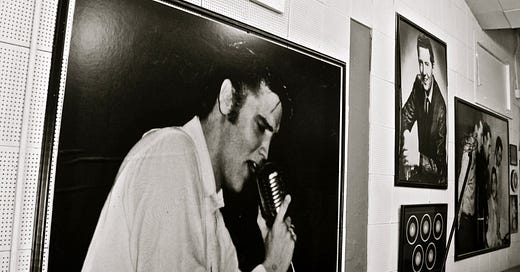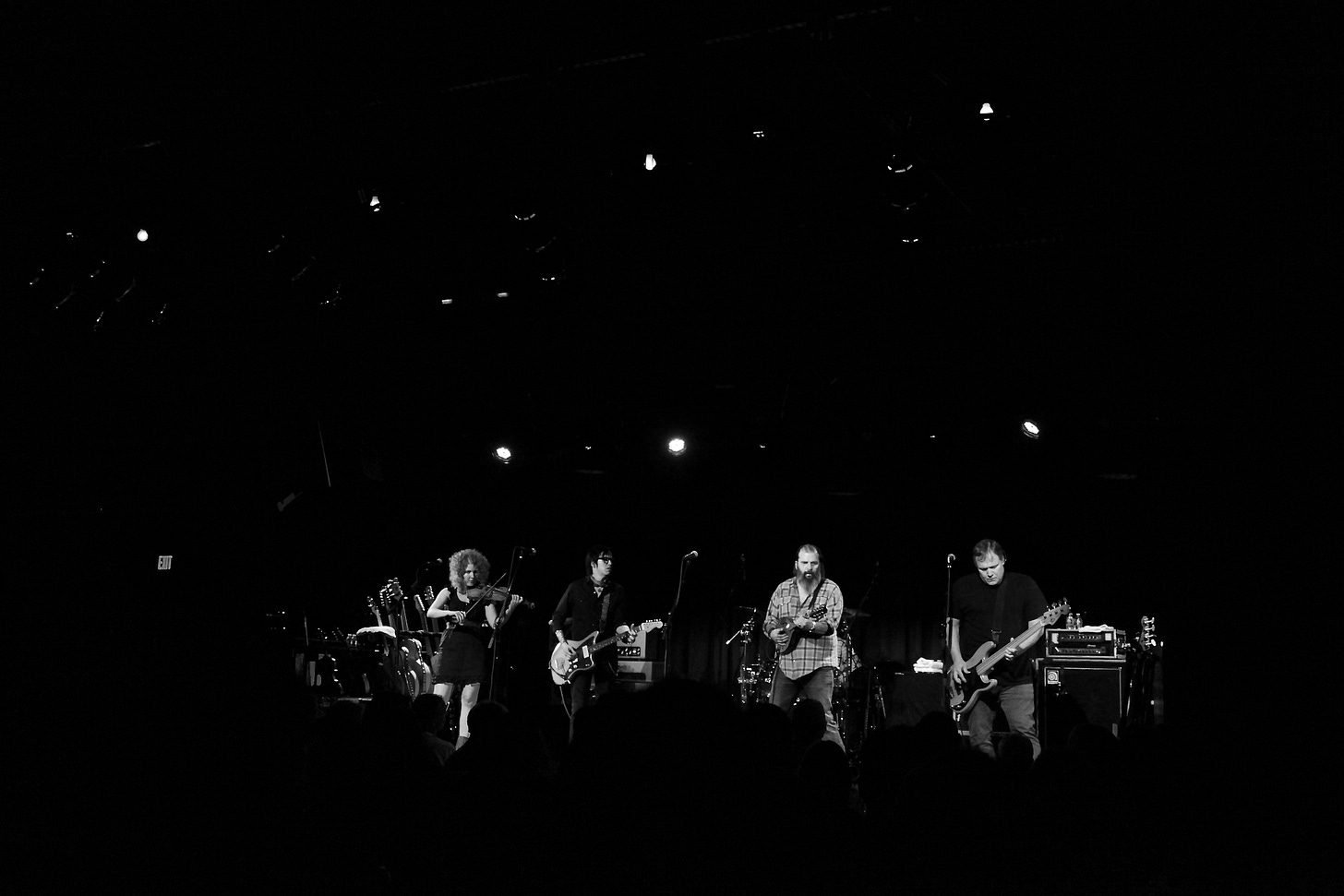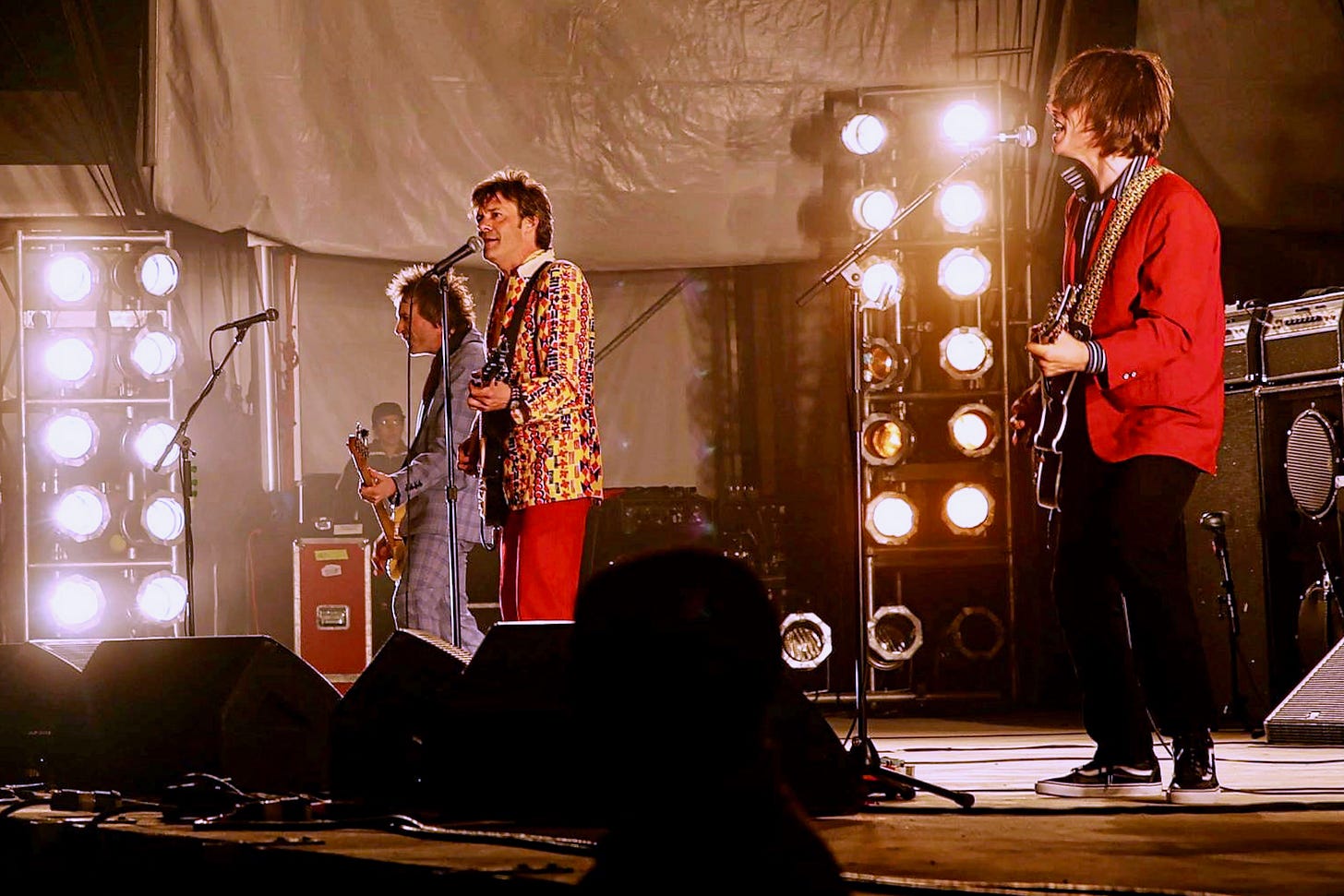I’m not an astrology person, but being vaguely superstitious, I never failed to read the horoscope in my daily newspaper as a kid.
The novelty of that wore off when I went to work for said newspaper and realized the syndicated horoscopes came to us not daily but in bulk, one month at a time. All I needed to see my future was to look in a folder stashed on a composing room desk between the TV listings and the cartoons, all of which were published daily on the same page.
Still, I find it trivially worthwhile (my justification for writing about it here) that I share the same astrological sign with four of my favorite musicians/songwriters. Two (David Bowie and Elvis Presley) are dead, while one is still hard at it (Steve Earle), and the fourth (Paul Westerberg) is still living but retired.
Today, Jan. 8, is the birthday of Elvis and Bowie. (Interesting, isn’t it, how we tend to refer to one by his first name and one by his last?) Both were cultural game changers, their long careers marked by periods of extreme highs and equally perplexing lows (sometimes caused by being extremely high on something). Their live performances shared theatricality and showmanship that was equal parts stunning at their peak and overbaked at their worst.
Bowie, like many musicians of his era, was a huge Elvis fan, and caught one of Presley’s 1972 shows at Madison Square Garden after traveling from London to New York for a long weekend. (The MSG shows were Presley’s first and only concerts in New York.)
“I remember coming straight from the airport and walking into Madison Square Garden very late,” Bowie said in a later interview. “I was wearing all my clobber from the Ziggy period, and I had great seats near the front. The whole place just turned to look at me. … I had brilliant red hair, some huge, padded spacesuit and those red boots with big black soles. I wished I’d gone for something quiet because I must have registered with him. He was well into his set.”
In another interview in 2002, Bowie said he had written his song “Golden Years” for Elvis, and Presley’s manager reached out to the singer’s team to see if he would be interested in writing or producing The King. The collaboration never occurred — Col. Tom Parker also blew deals with Barbra Streisand (for “A Star is Born”) and Dolly Parton (over the publishing rights to “I Will Always Love You”) — during Presley’s steep decline in the mid 1970s.
“I would have loved to have worked with him. God, I would have adored it,” Bowie recalled in the 2002 interview. “He did send me a note once. ‘All the best and have a great tour.’ I still have that note.”
Elvis died in 1977. I was fortunate to see him live twice, once when I was 6 and the second time when I was 9. I saw Bowie, who died in 2013, during his “Never Let Me Down” tour in 1988 in Houston; it was, sadly, overproduced and overwrought.
I did not have the chance to see him again before he retired from live shows, but I did go to the “David Bowie: Here & Now” exhibit with Jill and our friend/extended family member, Bernadette, in Chicago in 2014. It was stunning, but they didn’t let you take pictures.
Steve Earle
Born 10 years apart, Earle and I have the same birthday (Jan. 17) as Michelle Obama, Betty White, and Benjamin Franklin. (Also born that day: Benjamin Harrison, who was elected president in the contested 1876 election that led to the end of Reconstruction, so you can’t win them all.) And once, talking with him about growing up in Texas after a show, he mentioned that one of his cousins used to live on 13th Avenue in my hometown.
I’ve seen and photographed Earle’s shows — solo and with full bands — numerous times over the years. Like all the current musicians I admire, he has a diverse and restless portfolio of music, with everything he releases having several songs of interest. The best example of that diverse skill set is the album “Transcendental Blues,” released as we moved from the 20th to the 21st century.
Paul Westerberg
Speaking of the end of an era, Westerberg was born on the last day of the 1950s, five years and 18 days before I arrived. He became the front man for The Replacements, one of the greatest woulda, coulda, shoulda bands of the 1980s that managed to find imaginative ways to self-destruct at every turn. Westerberg played the major label game in the 1990s as a solo act, then went the independent route for much of the next decade before reuniting for a lucrative Replacements tour with Tommy Stinson from 2013 to 2015.
I missed Westerberg’s solo tours but caught The Replacements in 2014 and in 2015. Of the hundreds of shows I’ve attended over the years, the concert at Forest Hills in 2014 remains my all-time favorite.
Westerberg has not released new music commercially since The I Don’t Cares album with Juliana Hatfield in 2016. His manager says he is retired, but Replacements fans still hold out hope new music will be released. Meanwhile, Westerberg’s first band has been getting the spectacular reissue treatment from Rhino, with last year’s box set reissue/redo of 1985’s “Tim: The Let It Bleed Edition” finding its way onto numerous best-of lists.
Here are two songs by Westerberg’s solo career that showcase what a fun and interesting songwriter he is. The first is a live performance of “Things,” a heartbreaking ballad from his “14 Songs” debut; the latter is “Everything Goes Wrong,” a song Westerberg tacked on to the end of a 2004 documentary and, sadly, never released commercially.
Thanks, as always, for stopping by. If you liked this essay, or any have thoughts on any of the musicians I talk about here, please let me know by leaving a like or comment.






Didn’t know that Bowie had Elvis in mind when he wrote Golden Years. Station to Station is such a great album. Elvis would have been a different artist if Col. Tom hadn’t controlled him. You get a glimpse into that alternative history on From Elvis in Memphis.
An interesting read. Cheers from a fellow Capricorn!